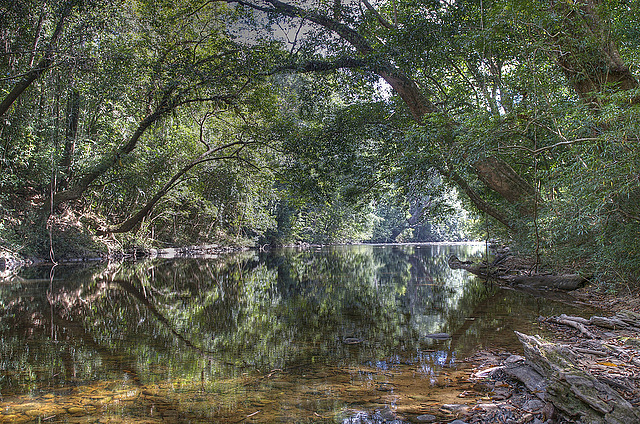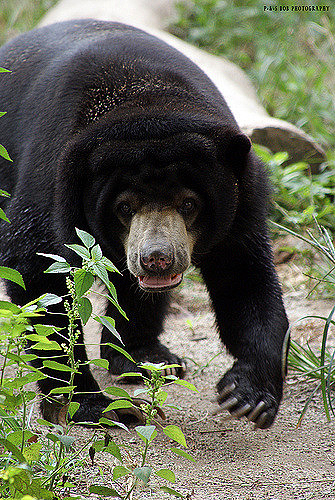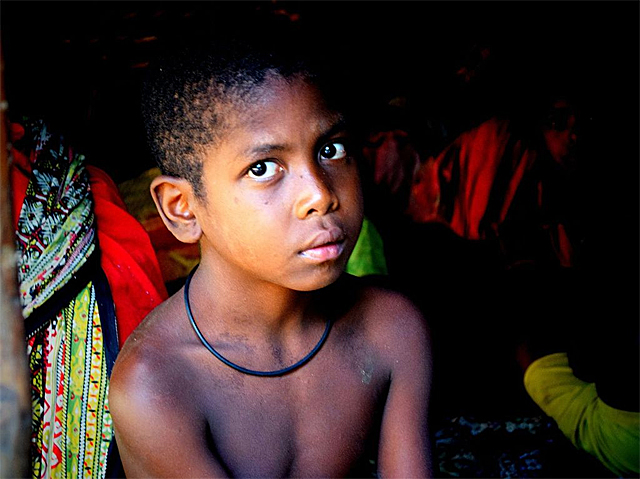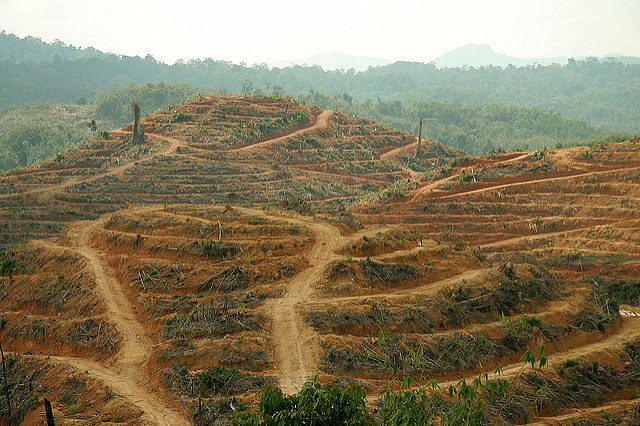A Batek man and his son were attacked by a sun bear in the forest near Malaysia’s Taman Negara National Park on Tuesday last week and the nine-year old boy was seriously injured. Many Malaysian news sources reported on the incident over the next several days.

The attack occurred at a river near the National Park. The New Straits Times reported that the boy, Dee Usop, and his 39-year old father, Usop Ching, both from the community of Aring near the park, were searching for sandalwood in the forest when they were attacked by the bear. Another newspaper, The Star, indicated that the attack occurred around 3:00 in the afternoon. The father suffered minor wounds on his back but the boy was badly clawed around his face. The incident occurred in the forest near Aring 8, in Gua Musang District, the southern part of Malaysia’s Kelantan state.
Although they were both covered in blood, the father managed to carry his son for an hour until they encountered some farm workers. One, a 41-year old man named Fan, drove the pair to a clinic for help. The father told the rescuer that they had not seen the bear until it was too late.

The Malay language news service Utusan added further details. Usop Ching told the paper that he did everything he could to try and save his son. He punched and kicked the bear repeatedly, he said, using stones and pieces of wood to try and beat off the animal’. After 30 minutes of fighting, the bear finally left the pair and fled into the forest. Usop told Utusan that he had just completed clearing some brush around his orchard when the bear attacked.
Usop was bathing in the Lebir River, while Dee was up on a cliff, Utusan reported. Suddenly the bear rushed at the boy and swiped him with its paw, causing him to scream. Dee was first treated at a clinic in Aring and was then transferred to the Gua Musang Hospital. A follow-up news story dated Friday, February 10, said that Dee was still lying unconscious in the intensive care unit of the hospital, though he had begun moving his hands and feet. The boy’s mother was staying with her son; the father was discharged from the hospital since his injuries were not very serious.

The news report from Friday provided a possible reason for the bear’s attack. One of Dee’s uncles, Neat Leaf, 27, suggested that a possible factor might have been the destruction of the forest habitat locally for the development of plantations—presumably the palm oil that blankets the region around Aring. In the words of the Google translation of the article, he said, “I think maybe the bear was out to look for food in the surrounding area.” Unfortunately, the hungry animal encountered the man and his son.
In a paper presented at a conference in November 2011, Kirk Endicott, an anthropologist who has done fieldwork among the Batek, said that when he studied them in the Upper Lebir River watershed in the 1970s, the Batek collected forest products such as fragrant woods and rattan to sell to traders and they harvested game animals and wild foods from the forest for consumption.

A more recent news report described the many damaging effects of rampant logging operations in the Lebir River drainage basin, especially the harm they are causing to the Batek. The literature supports the supposition by Neat Leaf, the boy’s uncle, that a possible reason for the attack could be the logging. An article in the Wikipedia mentions that sun bears can be quite fierce when they are surprised in the forest, even though they are the smallest members of the bear family, weighing anywhere from 60 to 176 lb (27 – 80 kg).
More to the point, a thorough journal article by Wong, Leader-Williams and Linkie (2015) on managing sun bear conflicts with humans in Sumatra pointed out that “sun bears rarely injure humans” (p.256), although they are known to attack farmers along the edges of forests. The authors came to the same general conclusion as the Batek uncle did: destroying forest habitat produces conflicts along the borders. In addition to their age-old fear of attacks by tigers in the forests, the Batek now may have to become more wary of the small bears.